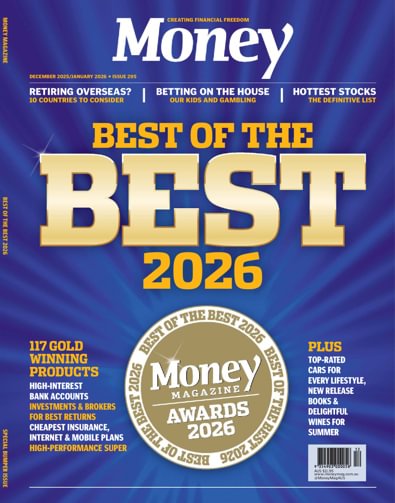Join our REWARDS program
Get $5 Credit > Read more
Join our REWARDS program
Get $5 Credit > Read more

This is a digital subscription supplied by Zinio, who will deliver the digital editions direct to your inbox - you can access them directly through your web browser or download the Zinio app on your mobile device. Which devices can I read on?
Print subscriptions are available for this title.
Money magazine helps you manage your finances by cutting through the jargon to deliver clear and precise information to help you save money and make the most of your investments. Each issue, you'll enjoy credible, well-researched reports and expert commentary from some of Australia's most respected financial writers.